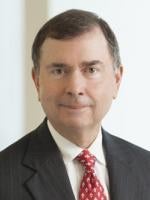Most loan contracts include provisions allowing the collection of attorneys’ fees in the event the borrower defaults. These attorney fee provisions are routinely enforced in collection suits brought in state courts.
However the federal bankruptcy courts operate independent of the state court debt collection system. Bankruptcy cases often generate a variety of controversies that will not occur in a state court collection suit. Thus, the issue frequently has arisen whether a general unsecured creditor may be allowed a state law-based contract claim against the bankruptcy estate for the attorneys’ fees the creditor incurs during a bankruptcy case.
In the bankruptcy proceeding of the Tribune Media Company, an indenture trustee filed a proof of claim for more than $30 million of attorneys’ fees it had incurred in connection with that bankruptcy. The trust indenture included customary text permitting the indenture trustee to recover costs and expenses of collection. On November 19, 2015, the highly-influential U. S. Bankruptcy Court for the District of Delaware issued an opinion, disallowing the indenture trustee’s claim for attorneys’ fees.
In its opinion, the bankruptcy court adopted a categorical rule that attorneys’ fees may never be allowed on a general unsecured claim. The court stated several rationales in support of its categorical rule. First it referred to section 506(b) of the Bankruptcy Code which expressly provides for allowance of post-petition attorneys’ fees for oversecured creditors. Citing the maxim of expressio unius est exclusio alterius (the expression of one is the exclusion of the alternatives), the court inferred that post-petition attorneys’ fees may not be allowed for unsecured creditors.
The court also construed section 502 of the Bankruptcy Code to require a court to determine the amount of a claim as of the date the petition was filed, thus precluding consideration of postpetition fees and costs. Finally the court relied on a policy argument that it is inequitable to allow certain unsecured creditors (presumably those whose contract allow a shifting of attorneys’ fees) “at the expense of similarly situated creditors.”
Significant to the court’s reasoning in Tribune was its interpretation of the U. S. Supreme Court’s opinion in Travelers Cas. & Sur. Co. of Am. v. Pac. Gas & Elec. Co., 549 U.S. 443 (2007). Specifically, the Tribune court reasoned that the Supreme Court in Travelers did not preclude a categorical rule disallowing attorneys’ fees in bankruptcy cases.
In Travelers, the Supreme Court reviewed the validity of a federal common law rule (known as the “Fobian rule”), namely that “attorneys’ fees are not recoverable in bankruptcy for litigating issues ‘peculiar to federal bankruptcy law.’” The Supreme Court rejected the Fobian rule because it found “no support in the Bankruptcy Code, either in § 502 or elsewhere” for the rule. Travelers reaffirmed a long-standing Supreme Court principle: “we generally presume that claims enforceable under applicable state law will be allowed in bankruptcy unless they are expressly disallowed.” Concluding that the Ninth Circuit’s application of the Fobian rule to preclude attorneys’ fees in bankruptcy was incorrect, the Supreme Court reversed and remanded the case.
The Tribune bankruptcy court construed Travelers to not foreclose the disallowance of attorneys’ fees on other statutory basis. Therefore, the bankruptcy court was free to consider whether section 506(b) precludes post-petition attorneys’ fees on unsecured claims, since the preclusionary effects of section 506(b) had not been fairly raised in the lower courts and was not considered by the Supreme Court in Travelers.
Conclusion
The court’s opinion in Tribune, while persuasive authority in some jurisdictions, will not be followed in other jurisdictions. For example, in Ogle v. Fidelity & Deposit Co. of Md., 586 F.3d 143 (2d Cir. 2009), the Second Circuit rejected the argument that section 506(b) of the Bankruptcy Code amounts to an express disallowance of attorneys’ fees on unsecured claims by negative inference or otherwise. Similarly the Ninth Circuit in In re SNTL Corporation, 571 F.3d 826 (9th Cir. 2009) determined that an unsecured creditor could include in its proof of claim attorneys’ fees incurred post-petition that were authorized by a pre-petition contract.
The issue of whether attorneys’ fees incurred postpetition by a general unsecured creditor are allowable will likely remain open until the categorical rule premised upon section 506(b) is finally reviewed by the Supreme Court. Until then parties will need to take into account lower court precedents established in the applicable jurisdictions.




 />i
/>i

